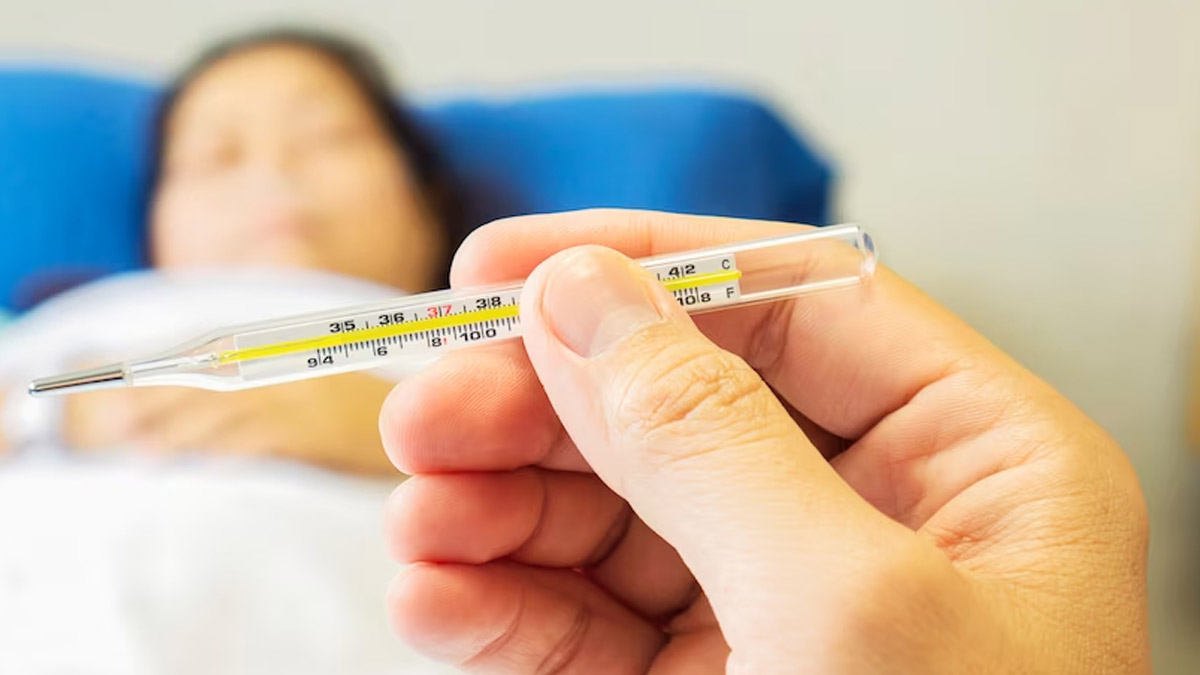
Worldwide, there has been a dramatic surge in the incidence of dengue infection, with the number of cases having increased from 5,05,430 cases in 2000 to 50.2 lakh in 2019, according to the World Health Organization (WHO). Currently, about half of the world's population is now at risk of dengue, with an estimated 10-40 crore infections occurring each year.
Table of Content:-
Dengue is a common illness that spreads through the bite of the mosquito Aedes aegypti. It thrives in hot and humid climates, especially during monsoons and has been wreaking havoc in many of the Indian states and cities. Health authorities in different localities have reported several cases of dengue infection and deaths. While symptoms, such as fever, headache, body and joint pain, and swollen glands remain prevalent, low platelet count, also known as thrombocytopenia, is a tell-tale sign of dengue, possibly the most concerning condition associated with the disease.
Also Read: Low Platelet Count Could Be Dengue But Do Not Ignore OTHER Causes
Cause Of Low Platelet Count In Dengue Patients

Ideally, platelet count in a healthy individual ranges from 1.5-4 lakhs. However, dengue fever can bring that count down to around 20-40 thousand. This occurs mainly because of three reasons.
- The infection suppresses the bone marrow, where the platelets are made, leading to decreased production
- Dengue virus can contaminate the blood cells, which in turn damage platelets
- The immune response during a dengue infection can also cause a drop in platelet levels
When the platelet count drops rapidly, immediate treatment and medications should be provided to the patient to prevent symptoms from worsening. In addition, making certain dietary changes can also provide support during the recovery process. Here are some foods to include in your diet:
Incorporate Folate And Vitamin B12-Rich Foods
Research suggests folate and vitamin B12 deficiencies can lead to a decrease in platelet count. Folate, also known as vitamin B, facilitates the healthy production of Red Blood Cells (RBCs) and also helps repair damaged blood cells. Vitamin B12 is another B vitamin that helps the body make platelets and other blood cells. Foods rich in folate include spinach, Brussels sprouts, avocado, broccoli, green peas, and kidney beans, whereas vitamin B12 sources include salmon, lean ground meat, egg, clams, and fortified nutritional yeast.
Papaya And Pomegranate
Speaking with the OnlyMyHealth team, Prof (Dr) SK Jain, Dean Faculty of Medical Sciences, Teerthanker Mahaveer University (TMU), UP, says “These fruits [papaya and pomegranate] contain vitamins and minerals that support platelet production and increase the count in the body.”
A study published in the Integrative Medicine: A Clinician's Journal (IMCJ) suggests that Carica papaya (C. papaya) leaf extract may prove beneficial for people suffering from Immune Thrombocytopenic Purpura (ITP), a blood disorder characterised by a decrease in the number of platelets in the blood.
On the other hand, pomegranate juice is said to reduce inflammation, muscle damage, and increase platelets blood levels in active healthy Tunisian aged men, as per a study published in the Alexandria Journal of Medicine.
Also Read: 7 Health Benefits of Kiwifruit: Increasing Blood Platelets to Improving Skin
Leafy Greens

According to Dr Jain, foods like spinach and kale are high in vitamin K, which plays a role in blood clotting and platelet function. Vitamin K is essentially needed for blood clotting and therefore, while it may not increase your platelet count, it may improve platelet function.
Foods Rich In Iron
Iron is an essential mineral that helps produce healthy RBCs. Research has also found that it may increase platelet counts in people suffering from iron-deficiency anaemia. Some of the key food sources include lentils, spinach, kidney beans, sardines, chickpeas, tofu, and nuts.
Drink Plenty Of Water

Dr Jain recommends drinking plenty of water to maintain proper blood volume and circulation. Dengue can cause severe dehydration due to fever, vomiting, and diarrhoea, which is why it is essential to drink plenty of fluids, such as water, oral rehydration solutions (ORS), and clear soups, to stay hydrated. Avoid alcohol consumption at all cost as it contributes to severe dehydration.
Conclusion
If you’ve been diagnosed with dengue and have a low platelet count, not only is it essential to rest, but it is also important to eat foods that support your platelet functions. Drink plenty of water to stay hydrated and avoid severe complications associated with the infection.
Also watch this video
How we keep this article up to date:
We work with experts and keep a close eye on the latest in health and wellness. Whenever there is a new research or helpful information, we update our articles with accurate and useful advice.
Current Version